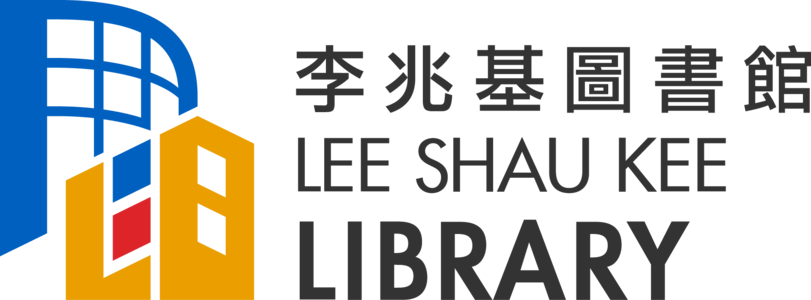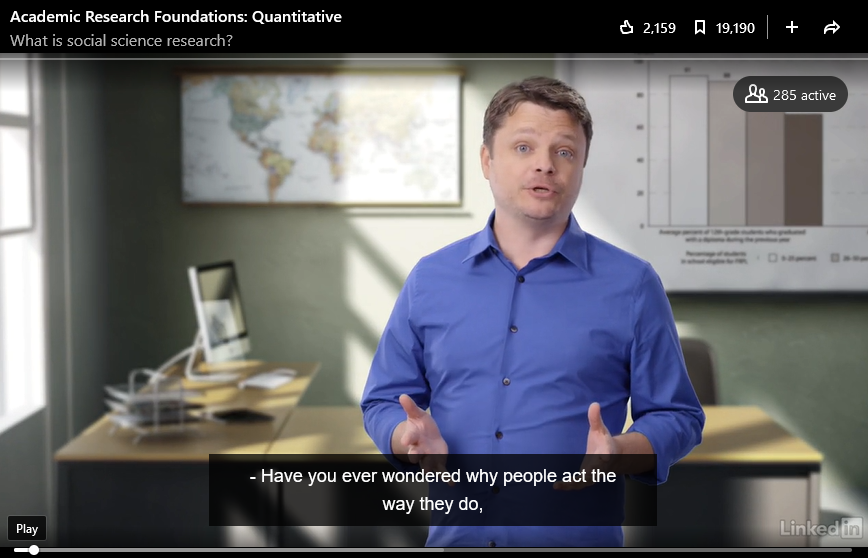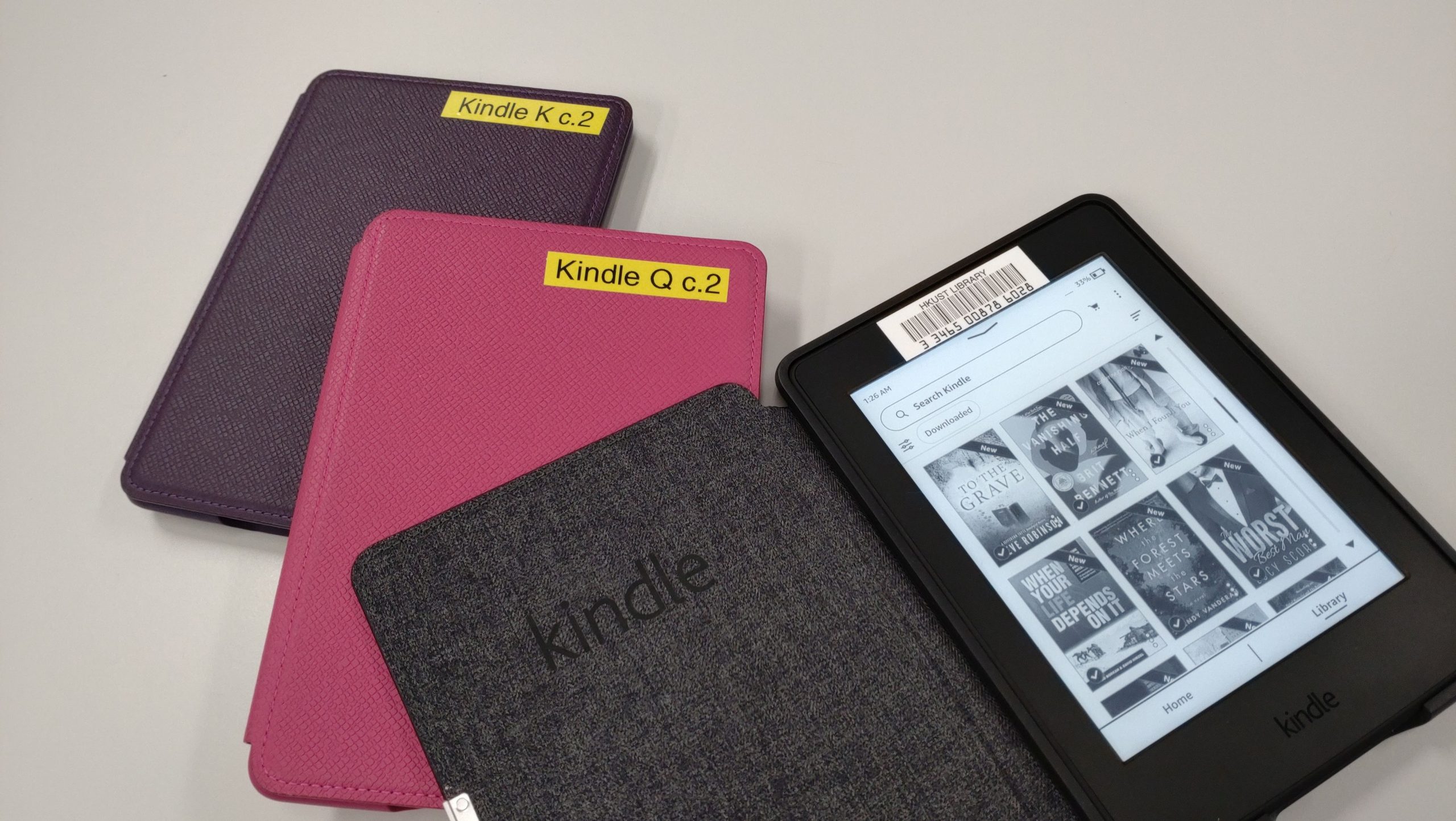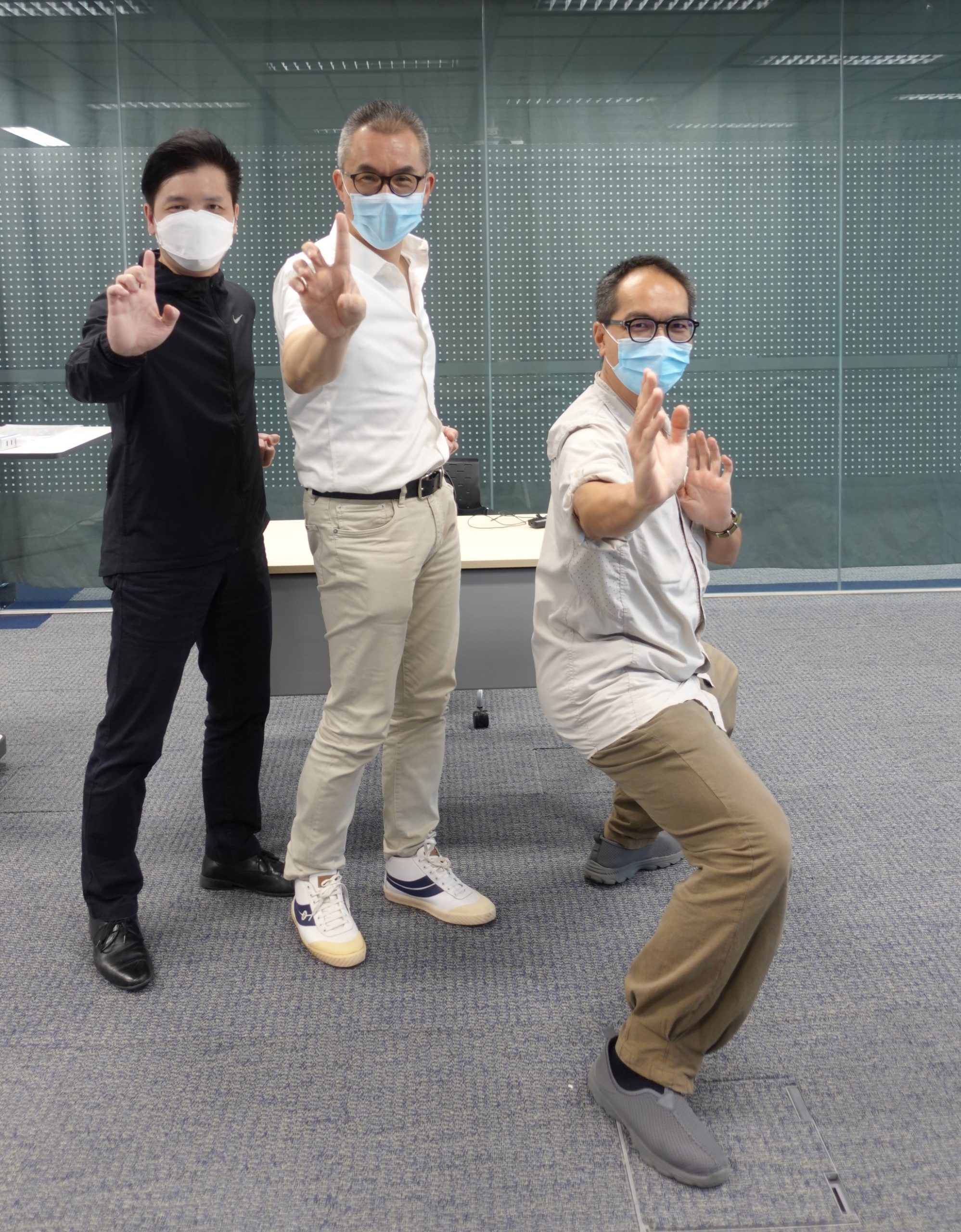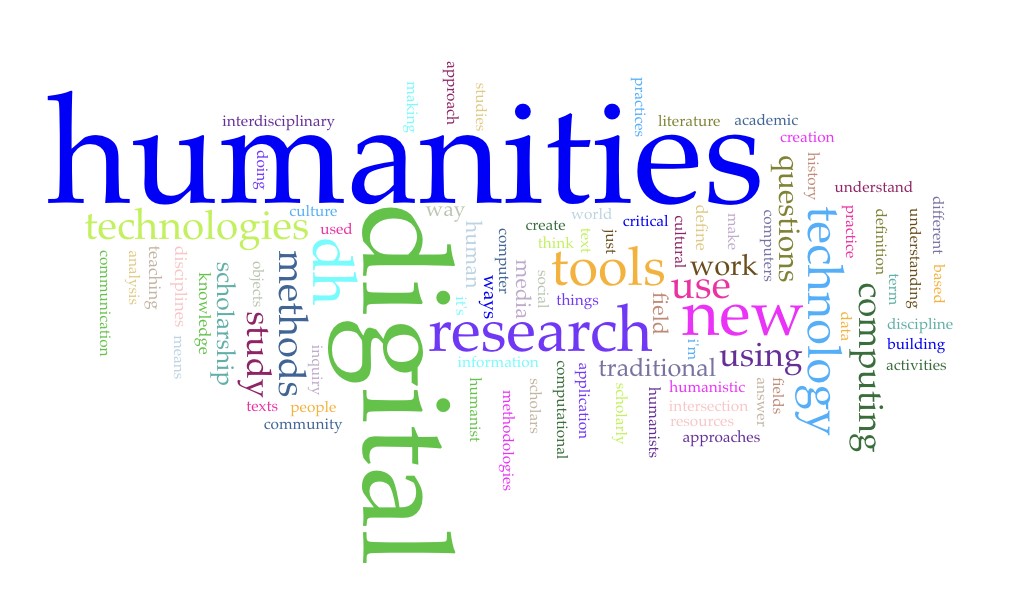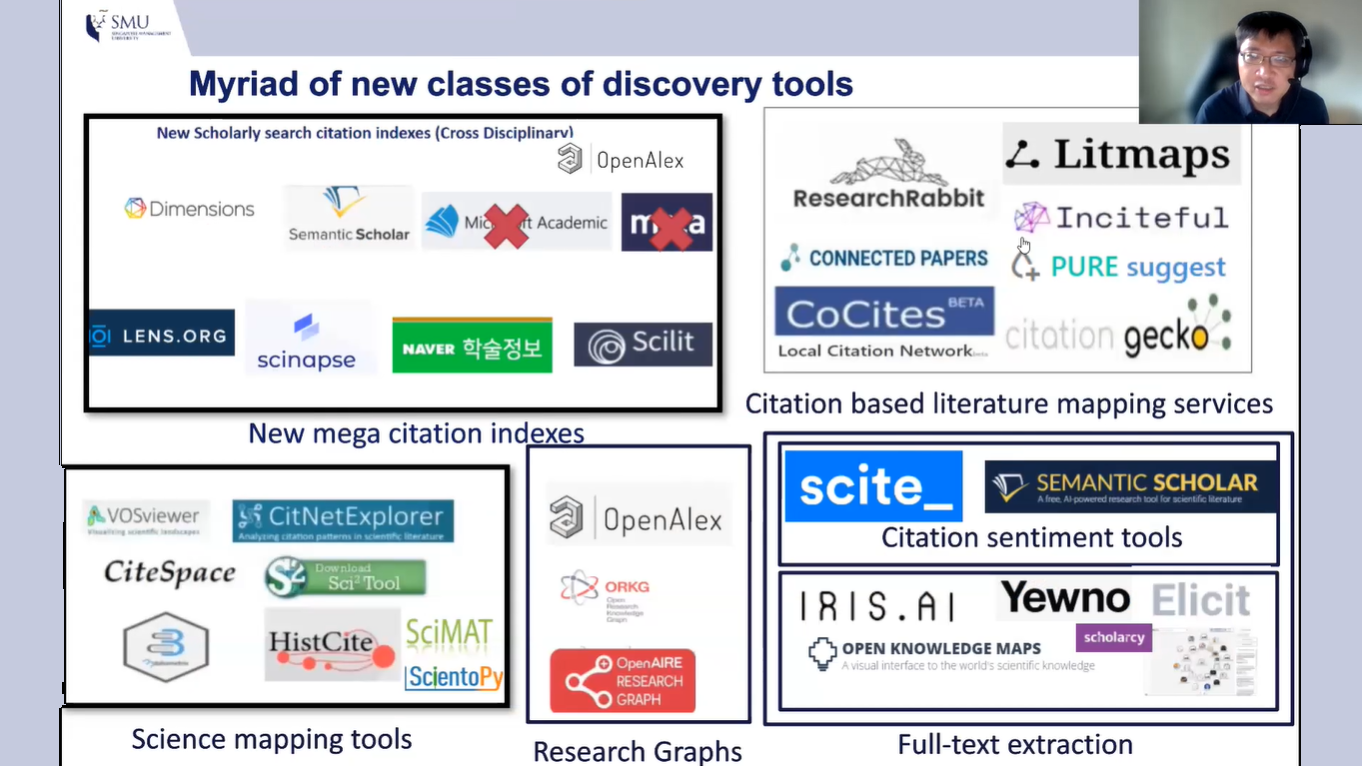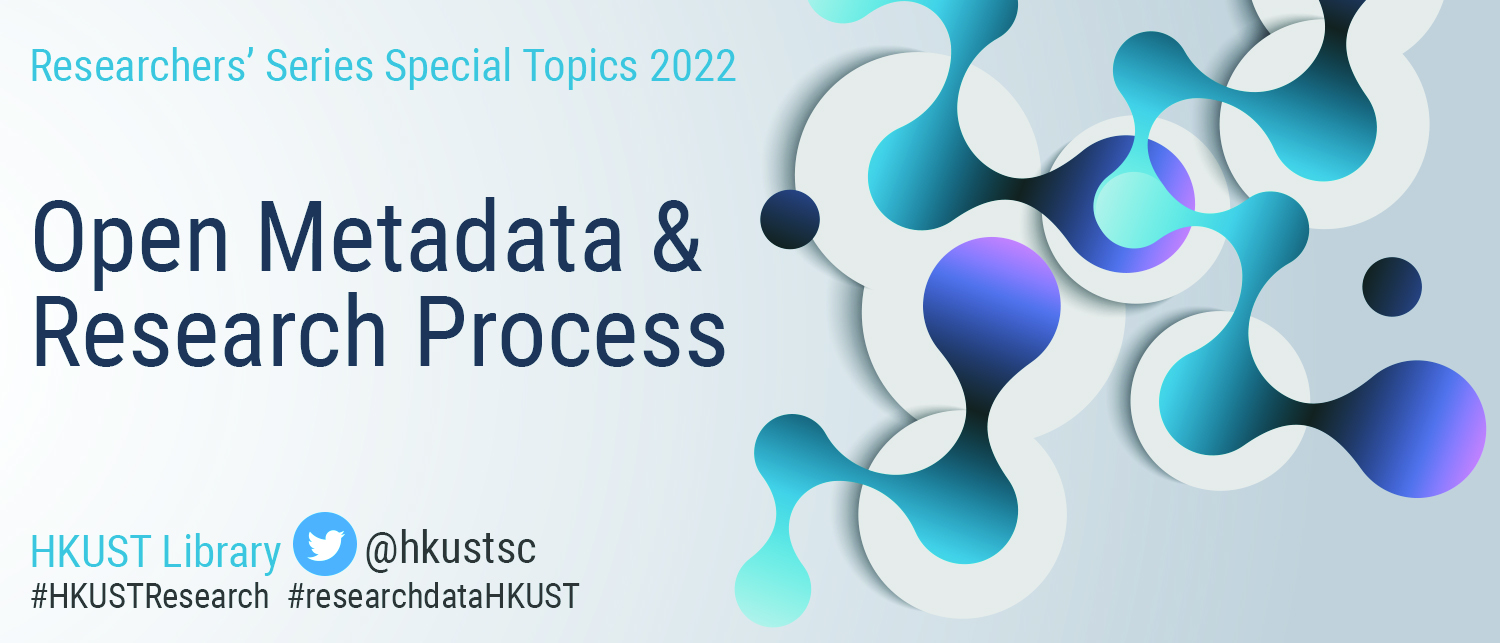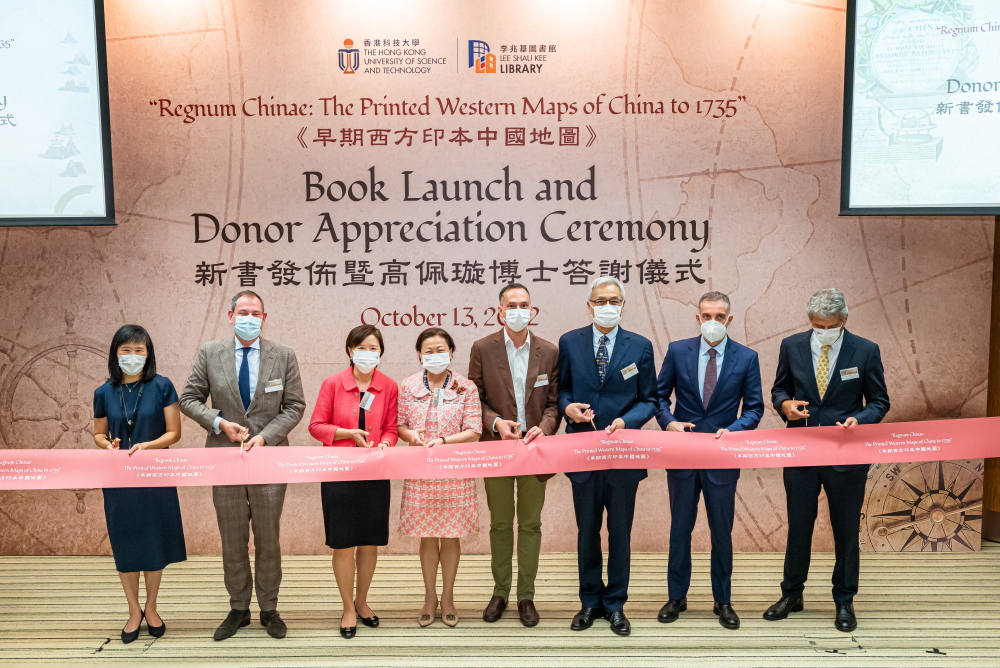
Issue No. 126
November 2022
Collection Spotlight: LinkedIn Learning
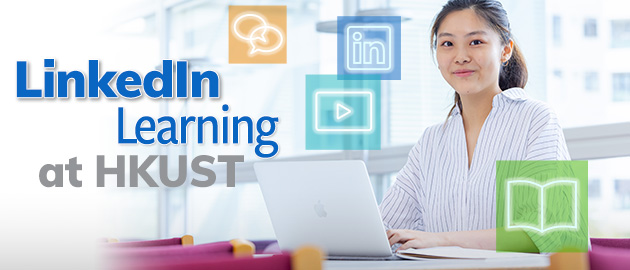
LinkedIn Learning is an online learning platform that helps you discover and develop new skills. Simply sign up for a personal account to enjoy unlimited access to over 16,000 expert-led course videos covering business, creative, and technology topics (https://www.linkedin.com/learning/browse?trk=learning-topics).
There are also professional videos and learning paths for researchers and scholars, such as:
Academic Research Foundations: Quantitative
https://www.linkedin.com/learning/academic-research-foundations-quantitative
Data Wrangling in R
https://www.linkedin.com/learning/data-wrangling-in-r
SPSS Statistics Essential Training
https://www.linkedin.com/learning/spss-statistics-essential-training
Tableau Essential Training
https://www.linkedin.com/learning/tableau-essential-training
Become a Data Scientist
https://www.linkedin.com/learning/paths/become-a-data-scientist
Want more to sharpen your research skills? Visit https://www.linkedin.com/learning/search?keywords=research
Sign up for a LinkedIn Learning account now! (https://lbdiscover.hkust.edu.hk/bib/991013095259803412)
Popular Ebooks on Kindle
The Library collection is not just about study and research. You can also find a good variety of leisure reading that helps you restore work-life balance. The popular book collection close to the Information Commons Help Desk invites casual browsing and serendipity, the same for the thematic book display which beckons to all who go through the Library entry gates. For an alternative reading experience, consider checking out a Kindle at the circulation counter. Introduced almost ten years ago, the Library’s Kindle collection has grown to 1,200 titles. There is no lack of award winners and top reviewed books. Each of the 36 Kindles is pre-loaded with 60 to 80 popular titles with a good mix of genres: general fiction and non-fiction, crime and mystery, thrillers, memoirs and biographies, self-improvement, travelogues, wit and humor, to name a few.
All Kindle titles can be discovered via the Library Catalog. The Popular Book page (https://library.hkust.edu.hk/collections-resources/guides-to-resources/popular-books/) allows you to browse the content of different Kindle sets. Just click Kindle N, for instance.
You will be spoilt for choice. How about Richard Branson’s autobiography and his success story with the Virgin Group? Or Angela Kelly’s The other side of the coin on the wardrobe of the late Queen Elizabeth II? Equally eye-catching is photography from the international Space Station in Hello, is this planet Earth? and a new thriller Escape by New York Times bestselling author James Patterson.
If you learn of any interesting Kindle titles the Library must have, let us know via this path: Library homepage–> About us–> Forms–> Recommending Books and Media.
歷史文化傳承講座
圖書館在這學年舉辦有關文化傳承的講座,希望令同學對歷史傳統、文化傳承和文物保育有更深一層的瞭解和認識。
程尋香港
在九月十九日,文化組織「 程尋香港」創辦人之一溫佐治先生主講「香港字海遊蹤」,與大家分享講者在街道、商店、餐廳、廟宇佛寺、甚至醫院內見到的書法作品,漫談這些字背後的有趣故事。參加者的回應:
“了解許多招牌、牌匾背後的有趣故事增加左我對香港文化的認識,對香港多左歸屬感”
“I most appreciate the rich historical and cultural values found in daily objects. I am surprised that even commercial signs contain such values. I feel sad that they were not better preserved, catalogued, studied and recognized by the public. This talk changed my understanding of signs in this city and helped me appreciate the history and culture behind calligraphy and words that I had overlooked before. The speaker brought all these to live for me. […]”
“Although this is not the message of the talk but it is my own reflection that protecting and educating the public about the values of these signs and calligraphy is an act of love for our culture, history and therefore our country. They are part of our history and identity that should be preserved. It is also our responsibility to our future generations so that they will be able to appreciate this part of our history and culture.”
香港浸會大學歷史學系麥勁生教授在九月三十日的「近代中國武術的多元展現」講座以文化史角度,觀察中國武術百年來的發展歷程和現代的變奏。參加者的回應:
“麥先生以歷史學者的角度,梳理分析武術和國術的發展源流,又不失個人作為習武者的部份,聽眾很有得益。”
“透過這次的講座,我認為講解中國不同武術的歷史發展對我最有幫助,不但加深對中國的武術傳統的認知,而且了解到近代各種中國武術文化隨著科技發展下亦能得以並存。”
春季學期,張兆和教授將會主講「文物保育與香港邊緣鄉郊復興」,敬請期待。
Digital Humanities and Digital Scholarship Working Group
In the spring of 2022, The Division of Humanities and the Library launched a joint project of Digital Humanities Workshop. The project will coordinate training for students and research assistants working on SHSS faculty’s Digital Humanities efforts, and help the Library to publish and disseminate Digital Humanities output from faculty and students. In the near future, the Digital Humanities Workshop will collaborate with counterparts at other Hong Kong universities to coordinate a Hong Kong Digital Humanities consortium series of lectures and programs.
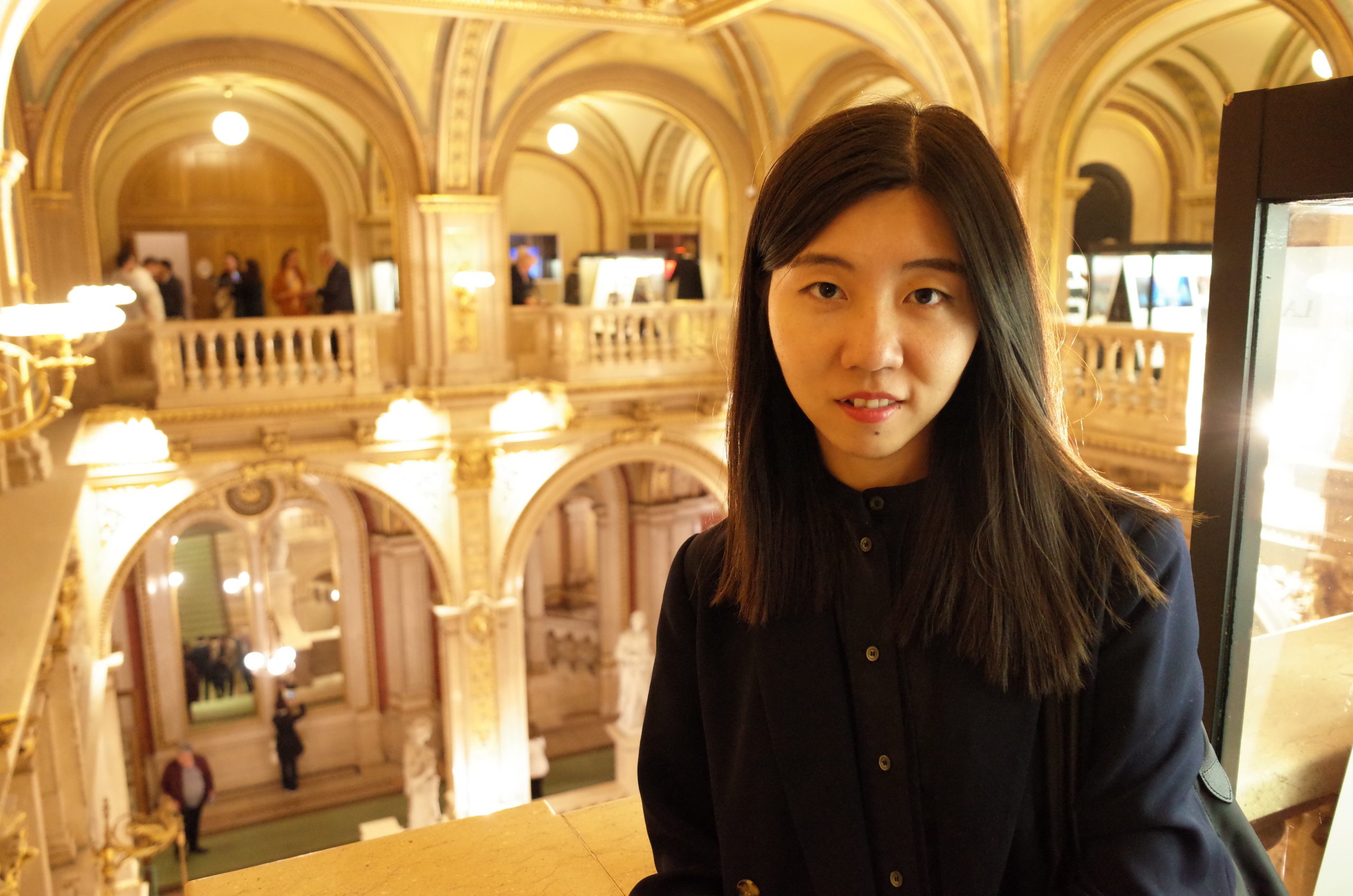 Dr. Qiuzi Guo is a lecturer and Digital Humanities Specialist jointly employed by the Division of Humanities and the Library since September 2022. After receiving a Ph.D. in Chinese art history at Heidelberg University, she worked in the interdisciplinary 4A Laboratory at Max-Planck-Institute Berlin, exploring transmedia storytelling with photographic collections in museums and archives.
Dr. Qiuzi Guo is a lecturer and Digital Humanities Specialist jointly employed by the Division of Humanities and the Library since September 2022. After receiving a Ph.D. in Chinese art history at Heidelberg University, she worked in the interdisciplinary 4A Laboratory at Max-Planck-Institute Berlin, exploring transmedia storytelling with photographic collections in museums and archives.
As a bridge person between HUMA and the Library, Dr. Guo will teach and train students to design digital projects, advise students to gain research experience in supporting faculty projects, and develop digital scholarship initiatives in the Library.
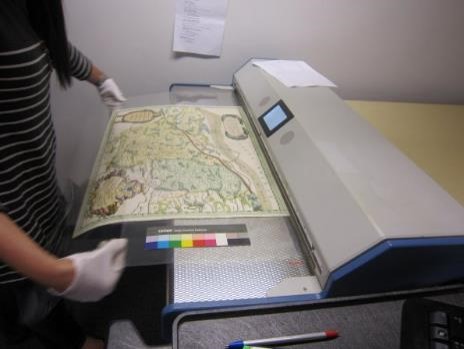 In October 2022, we established a Digital Scholarship Working Group. The group will provide advice and support for the digital scholarship team. Dr. Guo and her team will develop a series of workshops about tools and applications in digital humanities. These workshops may range from web-based tools such as StoryMaps to overviews of applications available for creating digital projects. Moreover, the team will build digital humanities/scholarship projects through collaboration with faculty and students.
In October 2022, we established a Digital Scholarship Working Group. The group will provide advice and support for the digital scholarship team. Dr. Guo and her team will develop a series of workshops about tools and applications in digital humanities. These workshops may range from web-based tools such as StoryMaps to overviews of applications available for creating digital projects. Moreover, the team will build digital humanities/scholarship projects through collaboration with faculty and students.
The Library as an interdisciplinary space plays a significant role in developing digital humanities workshops and projects. It will become a dynamic platform that enables faculty and students to learn skills and develop their own digital projects.
What is Digital Humanities?
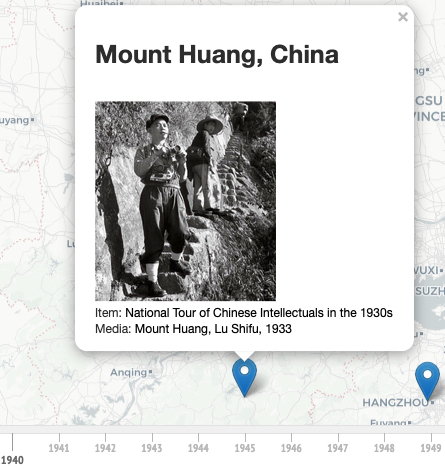 The past decades have witnessed the shift from print-based to screen-based visual culture. The use of digital media and technology has now become even more intertwined with our everyday lives due to the pandemic.
The past decades have witnessed the shift from print-based to screen-based visual culture. The use of digital media and technology has now become even more intertwined with our everyday lives due to the pandemic.
Confronting the big transformation of knowledge and technology in the digital age, arts and cultural institutions, humanists and artists started to experiment with the use of big data as well as to explore potential forms of collaboration. Moreover, learning to think critically about digital tools and culture has never been more important. Digital Humanities is one of the experimental fields.
Digital Humanities explores the design and use of computing software and systems to support humanities activities ranging from text mining of historical materials to the development of artificial intelligence art generators. As a highly cross-disciplinary community, or cluster of different communities, Digital Humanities spans the disciplines of history, literature, linguistics, art history, anthropology, etc.
Historians can use GIS to explore historical maps, discovering the spatial changes of a specific place; literature researchers can use the technique of text mining to analyze texts, or network analysis to visualize the network of writers; art historians can take advantage of the power of machine learning algorithms to authenticate artwork.
Digital Humanities brings digital methods to bear on traditional humanities scholarship. It does not replace traditional humanities. Rather, it is creating a new way of examining humanistic questions, and working with other disciplines such as computer science, information science, and media studies.
Innovative Applications for Improving Researcher Workflow
With advancements in machine learning and availability of open metadata and full-text access to scholarly works, myriad research discovery tools emerged in recent years. On October 14 we were delighted to have guest speaker Mr. Aaron Tay, Data Services Lead from Singapore Management University Libraries, to address this topic.
 Participants were amazed by the tools showcased in the seminar, for example, elicit.org, an AI research assistant that can help find papers, extract key claims and summarize text from plain language queries. Aaron also highlighted researchrabbit.ai for citation-based literature mapping and scite.ai that specializes at understanding the sentiment of a citation.
Participants were amazed by the tools showcased in the seminar, for example, elicit.org, an AI research assistant that can help find papers, extract key claims and summarize text from plain language queries. Aaron also highlighted researchrabbit.ai for citation-based literature mapping and scite.ai that specializes at understanding the sentiment of a citation.
These tools are helpful in recommending papers falling through the cracks of a traditional keyword search, particularly if we don’t choose the right keywords.
Given the many emerging tools on the market, Aaron recommended three key considerations when evaluating new tools:
- Underlying data
- Technical models and methods
- Business model
Good technical documentation or an “About us” page which sufficiently addresses these considerations should indicate sufficient coverage, robust infrastructure, and long-term sustainability for a tool to be reliable and trustworthy.
Aaron’s talk is the first of three in the Library’s Researchers’ Series Special Topics this semester with the theme of Open Metadata & Research Process.
On November 9 Dr. Ludo Waltman of Leiden University will walk us through the journey towards achieving full openness of all citations in the scholarly literature. Ludo will also discuss the ways in which openness of publication metadata can be improved and how we can contribute to this.
On November 23 Dr. Cameron Neylon of Curtin University share his insights on the shifting landscape of open science and research evolution. He will guide the audience to some of the tools and resources that they can use to try and predict how job applications, grant proposals, and success will be judged when it matters to them.
We look forward to seeing you at these talks!
Book Launch and Donor Appreciation Ceremony
On October 13 the Library held a Book Launch and Donor Appreciation Ceremony in the Kaisa Group Lecture Theatre (IAS), Lo Ka Chung Building. We celebrated the publication of “Regnum Chinae: The Printed Western Maps of China to 1735” and to expresses our gratitude to Dr. Ko Pui-Shuen, the project sponsor.
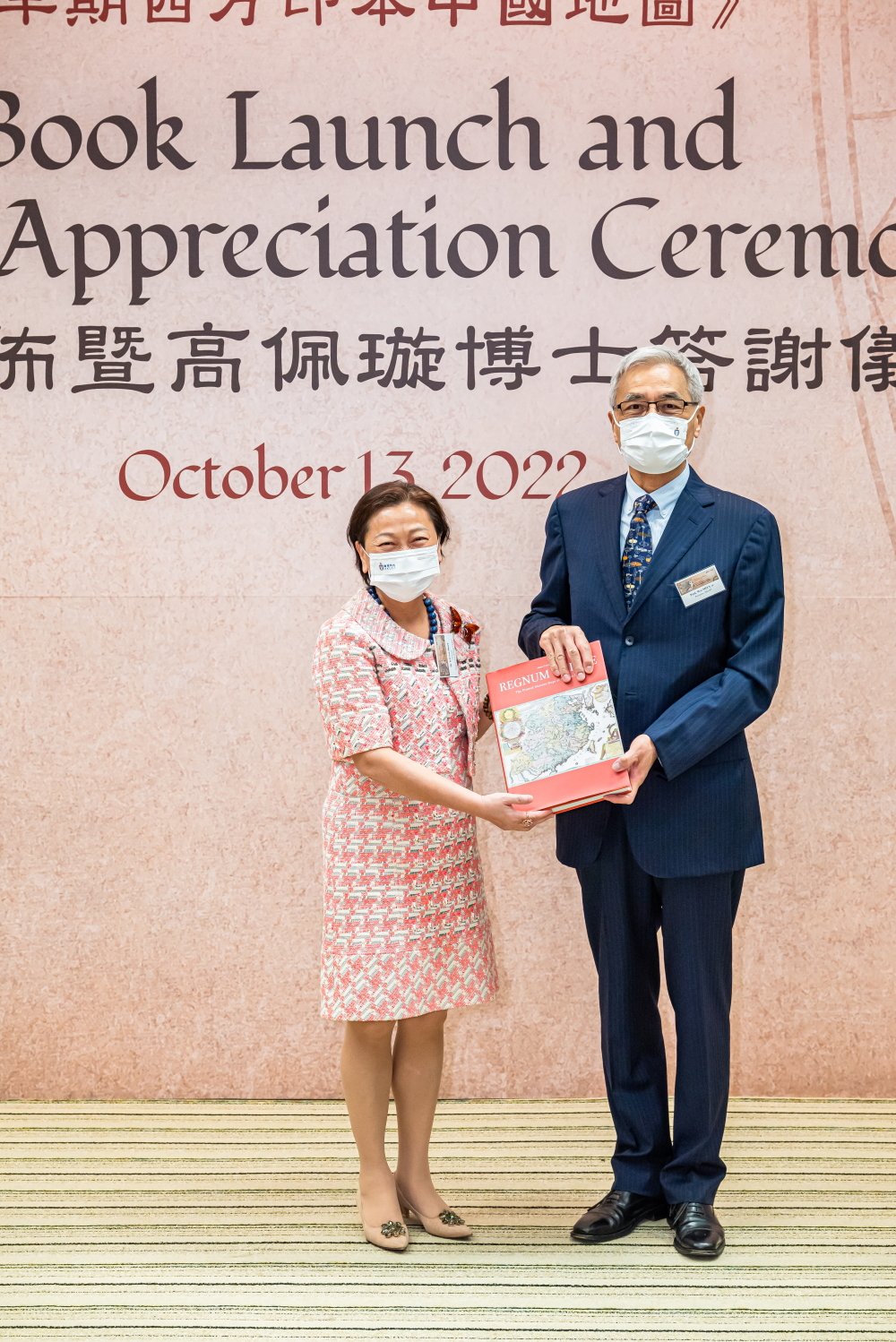 The book, the first comprehensive scholarly work on the topic, is authored by Dr. Marco Caboara of HKUST Library. It is largely based on our Special Collection of Antique Maps of China and has a companion website giving access in high resolution to all the 127 maps described in the book (https://mappasinica.hkust.edu.hk/ms/).
The book, the first comprehensive scholarly work on the topic, is authored by Dr. Marco Caboara of HKUST Library. It is largely based on our Special Collection of Antique Maps of China and has a companion website giving access in high resolution to all the 127 maps described in the book (https://mappasinica.hkust.edu.hk/ms/).
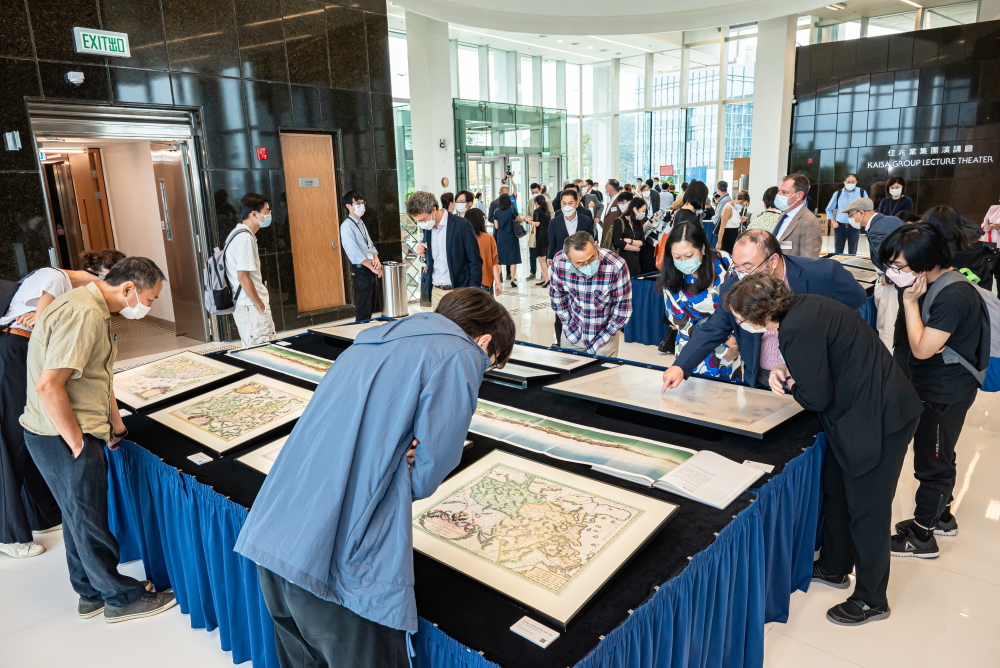 The event began with a book talk by the author, followed by browsing a selection of the Library’s maps. The ceremony started at 5 pm and was officiated by Dr. Ko Pui-Shuen; Prof. Wei Shyy, President of HKUST; Prof. Nancy Ip, President-designate of HKUST; Mr. Arjen van den Berg, Netherlands Consulate General in Hong Kong and Macao; Mr. Carmelo Ficarra, Consulate General of Italy in Hong Kong; Mr. Amr Elhenawy, Consulate General of Egypt in Hong Kong; Dr. Gabrielle Wong, Director of Library Services at HKUST; and Dr. Marco Caboara, Manager (Digital Scholarship & Archives) at HKUST Library. Dr. Peter van der Krogt, Research Leader, Explokart and Jansonius curator; Allard Pierson, University of Amsterdam; and Mr. Arjan van Dijk, Publishing Director of BRILL joined on zoom from the Netherlands.
The event began with a book talk by the author, followed by browsing a selection of the Library’s maps. The ceremony started at 5 pm and was officiated by Dr. Ko Pui-Shuen; Prof. Wei Shyy, President of HKUST; Prof. Nancy Ip, President-designate of HKUST; Mr. Arjen van den Berg, Netherlands Consulate General in Hong Kong and Macao; Mr. Carmelo Ficarra, Consulate General of Italy in Hong Kong; Mr. Amr Elhenawy, Consulate General of Egypt in Hong Kong; Dr. Gabrielle Wong, Director of Library Services at HKUST; and Dr. Marco Caboara, Manager (Digital Scholarship & Archives) at HKUST Library. Dr. Peter van der Krogt, Research Leader, Explokart and Jansonius curator; Allard Pierson, University of Amsterdam; and Mr. Arjan van Dijk, Publishing Director of BRILL joined on zoom from the Netherlands.
The ceremony culminated with a ribbon cutting by the officiating guests and with the presentation of the book to Dr. Ko Pui-Shuen by Prof. Wei Shyy.
For the occasion, around 20 precious maps of China from the library collection were displayed in the Lo Ka Chung Building’s hall.
last modified 07 November 2022

